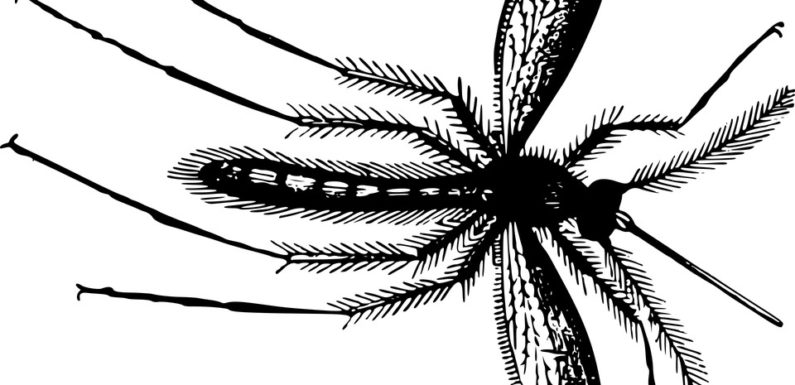
Gnats is a colloquial term for any flies smaller than the common housefly and is specifically associated with flies that bite.
The more formal term for gnats is black flies. For the most part, gnats and black flies in North America don’t cause much damage to people’s physical health or to property or crops. Some people do have allergic reactions to black flies; though this is uncommon, it’s an extra reason to use insect repellent during peak black fly season.
This peak season occurs during the spring and summer months—especially if you live along the Canadian Shield or in New England, where the landscapes are perfect breeding grounds for these pests.
Table of Contents
Signs of a Gnat or Black Fly Problem
The signs of a black fly or gnat problem—small red bumps on your skin that itch a lot—are usually obvious. Unlike mosquitoes, gnats and black flies are active during the day, preferring shaded areas near the streams where they develop from larva into adulthood.
Exclusion
- Window screens: Because gnats and black flies are so small, standard 18×16–mesh aluminum screens may not do the trick. Fiberglass window screens that are 20×20–mesh or finer will prevent gnats from coming indoors. Most large hardware and building centers offer customizable window screening.
Chemical Control
- DEET: Apply any insect repellent containing DEET to exposed skin or over your clothing before going outside during peak black fly season. Repellents such as those made by Off!® and Cutter® are must-have items for anyone camping near the Canadian Shield.
- Yard-fogging sprays: Spectracide® and Raid® both make yard-fogging sprays that may reduce a black fly population for a few hours, but this method should be used only on special occasions because eventually the black flies in your area will adapt to and resist the toxic ingredients these foggers contain.
- Bti: Bti (Bacillus thuringiensis var. israelensis), a bacterium found in a product called Mosquito Dunks®, can be used to kill local black fly populations if applied early enough in the spring. Place Mosquito Dunks into any nearby sources of flowing water as soon as spring has thawed them. Reapply Bti once every 30 days for black fly and gnat control throughout the summer.
Keeping Gnats and Black Flies Away
- Local government: Local government–sponsored Bti treatments applied to rivers, lakes, and streams are gaining popularity and seem to be the only solution to preventing black flies from becoming a problem during the summer months. Call your state extension office for more information about Btis and their applications in hindering black fly population growth.
- Damming: If you live near a small stream or any area that might be considered a lowland or marsh, consult a local conservation officer to find out whether you can dam the stream early in the spring, when most black flies are still unhatched eggs. Black flies require fast-moving water to mature and reproduce. If you can stem the flow of the water, you may be able to reduce the population of black flies in the immediate area.

